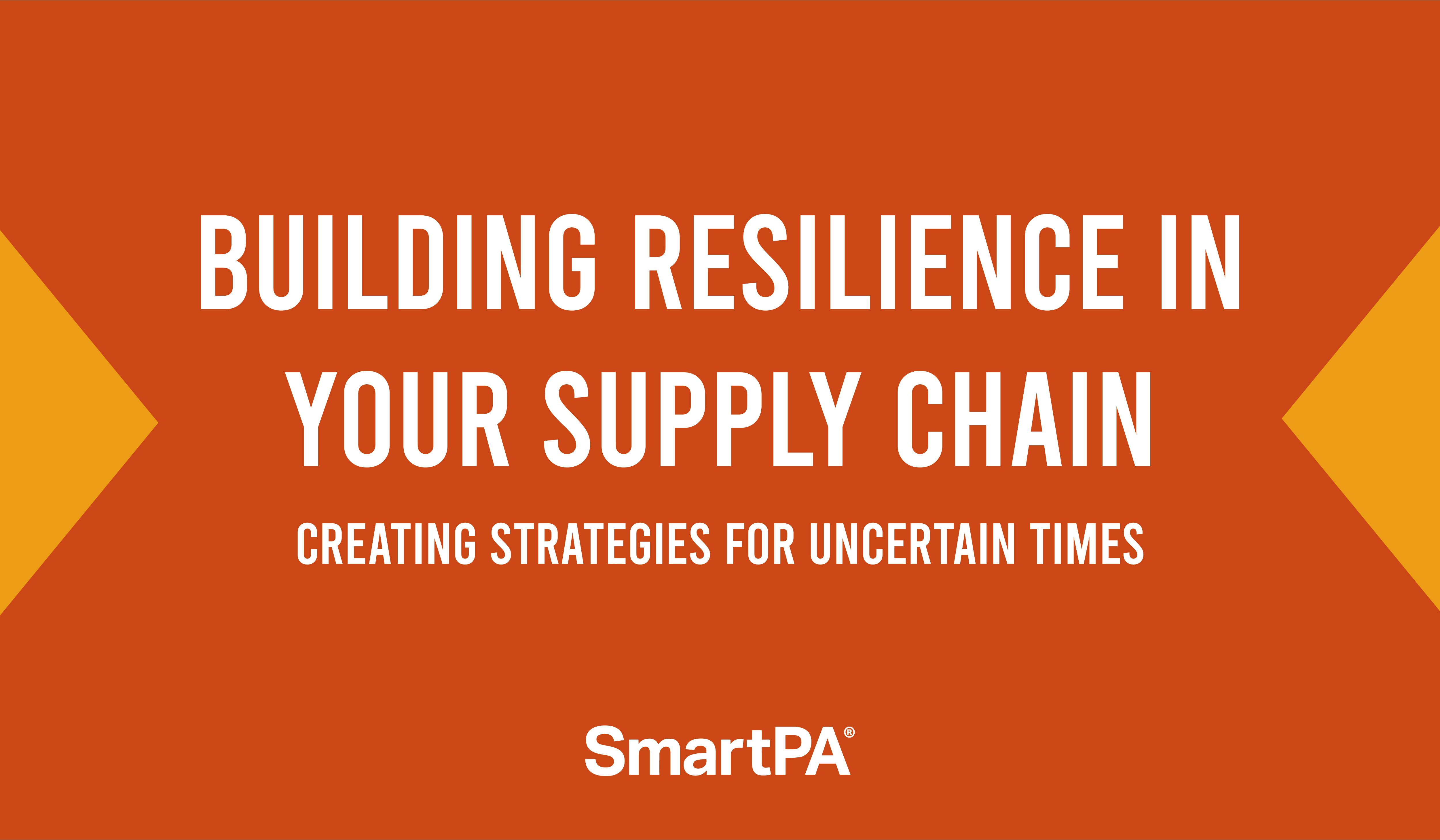In recent times, organisations have seen their business capabilities threatened by a range of serious and unexpected challenges - a global pandemic and recession woes, political tensions, and rising sickness levels in the corporate sector to name but a few. So, it’s no surprise that supply chain resilience - the ability of a supply chain to withstand and recover from disruptions while maintaining its core functions and meeting customer demand – is now seen as a business-critical priority.
Creating a cost-effective and resilient supply chain strategy that will cope in times of uncertainty is essential if organisations are to unlock the full potential of their supply chains in today’s volatile and competitive marketplace. To do so requires proactive planning, effective risk management and the implementation of robust processes and technologies to mitigate the impact of disruptions.
In this article, we share some key high-level strategies for building resilience, look at some of the benefits of outsourcing aspects of your supply chain, and provide a supplier’s eye-view of what it takes to make an outsourcing partnership successful.
Building resilience: 6 key strategies
1. Proactive approach to risk management
Firstly, supply chain resilience requires a proactive approach to risk management. This means that businesses need to conduct thorough risk assessments to identify potential vulnerabilities and develop contingency plans to mitigate risks. Implementing scenario planning, where disruptions are simulated, will assist businesses to develop contingency plans that are focused on real risks and help them respond swiftly during actual crises.
2. Flexibility and adaptability
Organisations must also focus on building flexibility and adaptability into their supply chains. This may involve investing in agile processes, flexible solutions, and scalable infrastructure that can quickly adjust to changing market conditions and customer demand.
3. Diversification
One crucial element of any supply chain resilience strategy is diversification. Relying on a single source for critical components or materials can leave your business vulnerable to disruptions. In the wake of the pandemic, many organisations have also retained elements of virtual and hybrid working to help bolster their abilities to cope with sudden challenges.
4. Increased focus on core activities
Outsourcing non-core services to suitably vetted external partners reduces the amount of management time required during challenging times, as the day-to-day operations of these activities will continue to be handled by the relevant service provider.
5. Building effective relationships
Establishing strong relationships with suppliers, customers and other stakeholder organisations can foster trust and facilitate information sharing, making collaboration and communication essential proactive components of supply chain resilience. This becomes crucial when faster problem-solving and responses are required during times of crisis.
6. Visibility and transparency
Another key strategy for enhancing supply chain resilience is to invest in visibility and transparency. By leveraging technology enabled tools such as utilisation reports, businesses will gain real-time visibility into their supply chains, allowing them to track capacities and trends, and identify potential bottlenecks or disruptions quickly. This visibility enables businesses to make informed decisions, address issues proactively and collaborate more effectively with their suppliers and partners.
Why leveraging outsourcing aids resilience and supports growth
Outsourcing aspects of supply chain management can contribute significantly to building supply chain resilience, enabling the cost-effective management of capacity in the face of surges and slides in demand. Here are some compelling reasons why organisations choose to outsource elements of their operations.
Cost efficiency:
Outsourcing can help businesses achieve supply chain cost savings and efficiencies. Instead of investing in building and maintaining in-house technology and expertise, an organisation can outsource certain functions to external providers who can deliver services more cost-effectively, especially for non-core or specialised activities.
Risk mitigation:
Diversifying the supply chain enables businesses to reduce the impact of localised disruptions on operations and supports continuity planning.
Scalability and flexibility:
Outsourcing gives organisations greater scalability and flexibility to adapt to changing market conditions and fluctuations in demand. External providers can quickly and cost-effectively ramp up or down capacity and capabilities in the face of short-term demand spikes, seasonal variations, or unexpected disruptions.
Access to specialised expertise:
This allows organisations to tap into the specialised expertise and capabilities of external service providers, providing access to their knowledge, resources, and best practices.
Focus on Core Competencies:
Outsourcing allows businesses to focus on their core competencies and strategic priorities while delegating non-core activities to external providers. This frees up internal resources, time, and bandwidth to focus on innovation, product development, customer engagement and other value-added activities that drive growth.
Outsourcing to SmartPA
We asked SmartPA’s Corporate Services Development Manager, Becky Fleming, to provide a quick overview of the ways in which SmartPA supports its clients to build resilience in their supply chain.
Collaborating with SmartPA offers resilience across various aspects, as we emphasise a relationship-centric approach focused on enhancing our clients' operations, both in the short term and for long-term future planning.
Our SmartPod operating model incorporates built-in contingencies to effectively address potential risks, including scenarios like annual leave and sickness, while ensuring stakeholders receive ample support. The SmartPod is particularly valuable to clients during stress periods when additional assistance may be required, all while upholding our commitment to maintaining quality standards and fostering strong relationships.
We prioritise communication and foster a culture of continuous improvement, consistently striving to enhance our services and simplify our clients' lives. Our utilisation reports play a crucial role in this effort, enabling effective forecasting and future planning. Ultimately, our partnership enables clients to make informed decisions more efficiently, thereby supporting their bottom line.
In recent times, we have observed a growing trend amongst clients seeking to ensure sustainability and ethical practices within their supply chains. SmartPA’s dedication to ethics and broader social initiatives provides clients with added confidence and assurance in their partnership with us.

Becky Fleming
Corporate Services Development Manager
Find out more
Click here to find out more about how partnering with SmartPA can help your organisation improve profitability and resilience by outsourcing non-core business support or administration services to SmartPA. Alternatively, contact us directly to discuss your requirements.
About SmartPA
SmartPA is a pioneer of remote, outsourced admin and business support, providing individual SmartPAs, multi-skilled cross-functional teams, and full lift and drop admin process outsourcing. Working with more than 5,000 businesses of all sizes world-wide, SmartPA draws on a global talent pool of accredited SmartPAs, with a Centre of Excellence based in the UK, near shore hubs in South Africa and Uganda, and an offshore hub in Malaysia.
